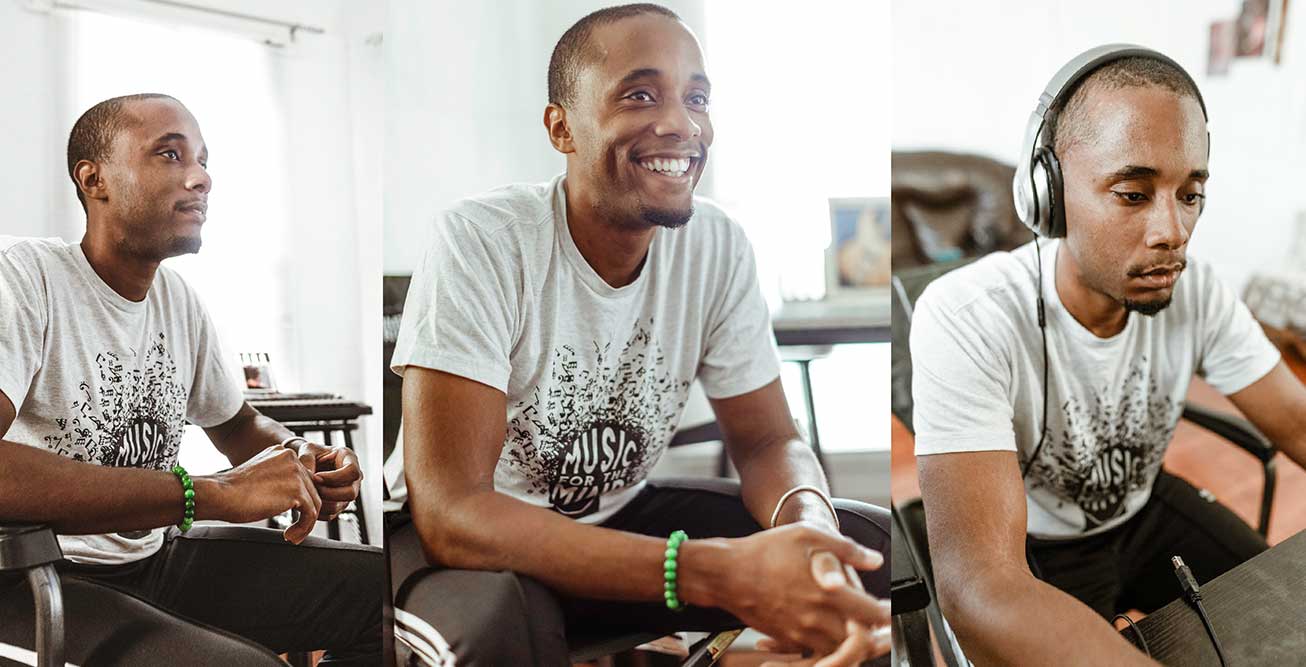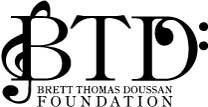LeBaron Ahmon

This month’s Music for the Mind Artist Spotlight is on rapper/poet LeBaron Ahmon, who happened to be part of 2018’s annual installment of the Music for Mental Health Benefit Concert! Read on to learn more about LeBaron, and how he connects music and mental well-being:
How would you describe your music in three words?
Free, intrinsic, and heavy.
What’s the earliest music memory you have that made you think, “I want to do that”?
In the 3rd grade, my dad had an acoustic guitar with only had four strings on it. He taught me to pluck each string basically tuning my voice to the strings. He was teaching me that warm-up song, “My dog has fleas.” (Sings) “My dog has fleas,” and then we would go backwards with (sings, again) “fleas has dog my.” It was very simple, but it was a moment music became more real for me.
My dad used to manage a lot of musical artists, and he played bass guitar with some of the artists, so I grew up surrounded by music.
Earlier, you described your music as “heavy.” Can you elaborate on that?
Well, it’s wordy. You really gotta listen. If you want to enjoy it, you can't really put it on in the background. It's like something you can run to because it needs focus, and though you can enjoy it in the background, the point is to get 100% of the song. To catch the words with the music for the full feeling involved in the song.
Speaking of which, your music often falls into genres of rap and hip-hop, but your core is really spoken word poetry. How would you say your music has developed over the years in reflection of the journey from slam poetry to rap?
I’ve gotten less slam-y, and I got more musical. When I was in college, I took myself way too seriously. For me, I only read black writers, wore African jewelry, had the big afro, all of that. But I was not really that deep into the music. Instead, I would write based on what I thought, and not what I felt. As I've grown, I’ve grown to write feelings-based music, as opposed to intellectualized music.
Speaking of the creative process, you also work in the world of film. How does that affect your musicality, or vice versa?
I like sounds to be full, rich, and big. I love the sound of scores. I like using different emotional and visual concepts that translate into musical ideas, making the sound of the song thematic, and poignant.
When thinking about music as a catharsis, how has it gotten you through the harder times in your life?
Music is nurture. I know that people go to holy books, self-help books; I literally take to music to find answers.
On that note, what does the phrase “Music for the Mind” mean to you?
It means music to expand. When I’m creating, I call it the mind flowering – you’re listening to something and you can feel the mind growing. You feel that expansion of the mind listening more creatively, growing in new perspectives or fresh ideas.
What is the message that you hope people get through your music?
I want people to know that there's beauty in their life, always, no matter how you live. When you hear my music, I hope you can find the beauty in there, and find the beauty in your life, as well.
Aside from music, what are some other resources you use to care for your mental health, or to cope during times of challenge?
I talk to my friends. I pray. I embrace silence – complete silence and stillness to get back to a grounding space.
Also, I started taking my health seriously. When I changed my diet a few years ago, it felt like I got a brand-new set of eyes, a brand-new set of ears, and my heart was able to start regulating itself, again. Before, my body was so stressed out, from what I was putting into my body, and how those toxins fed my mental state. Changing gears to be more intentional with my health, my diet, my activity, really did lift a veil off, provided clarity for my mind.
As we wrap up our interview, what are some final thoughts you’d like to share with us along the spectrum of music, mental health, and everything in between?
I really want to say, to anybody who's going through anything, take a look at your physical health first. That truly might be the foundation of your troubles. If you're able to fight through gaining control of your physical health, that may start you on a clearer mental health. When I started paying attention to my health, everything changed. I listened more, had more faith, became active, had more energy. Part of my depression, and other challenges was fed by low energy. Once I stopped letting processed food be my main sustenance, my energy changed, and so did my mood.
In the process of looking at your mental health, consider every aspect of your health – physical and otherwise – because I believe they are related, and we have to give some respect to each aspect of our overall well-being.
LeBaron Ahmon is a New Orleans-based rapper, poet, performer, instrumentalist, and film industry worker whose music reflects a unique sense of nuanced rawness, and thoughtful rhythms. To listen and learn more about LeBaron, go to:
Official Website:
Facebook: https://www.facebook.com/LeBaronAhmon/
Instagram: https://www.instagram.com/elb.am/
Spotify: https://open.spotify.com/artist/3YcoTCGVyjuXqL3swPi3Hk
Dopeciety: https://dopeciety.com/elb-am
All photos by Jose Cotto for the Brett Thomas Doussan (BTD) Foundation.

